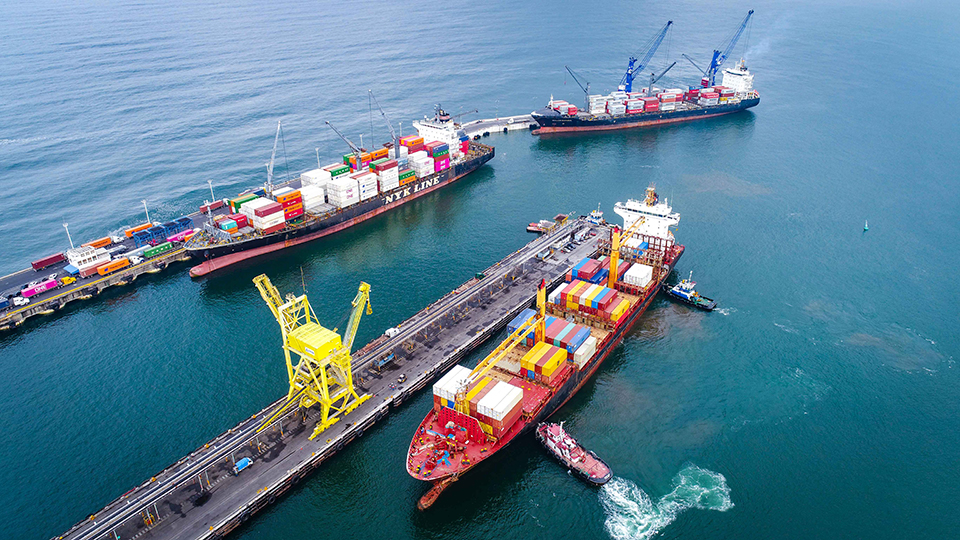Agreements: 1.2 billion potential consumers

El Salvador as a hub for business represents much more than its 6.45 million inhabitants. Regional and bi-national trade agreements with different countries of the world, consolidate El Salvador as an export hub capable of covering more than 1.2 billion people in 42 countries. Its extensive network of trade agreements with the Americas, Europe and Asia allows business within a global reach. The free trade agreements negotiated by El Salvador provide flexible rules of origin, as well as the elimination and significant reductions in import tariffs.
El Salvador has trade agreements with Central America, Chile, Colombia, South Korea, Cuba, Ecuador, United States, Mexico, Panama, Dominican Republic, Taiwan, and the European Union.
Main agreements are the following:
CAFTA (Dominican Republic-Central America-United States Free Trade Agreement)
Ratified in 2009, CAFTA (Central America Free Trade Agreement between the United States, Central America and the Dominican Republic) is the name of a group that established a free trade zone between Costa Rica, El Salvador, the United States, Guatemala, Honduras, Nicaragua and the Dominican Republic.
Its objective was to reduce and eliminate customs tariffs between these countries, providing greater flexibility in the import and export of products:
With the implementation of CAFTA, products exported by the United States got their tariffs reduced by 80% and reached the mark of 100% in 10 years. The formalization of this block allows the expansion of U.S. transnational companies, since they can operate in Central American countries paying lower taxes and employing cheaper labor. For the rest of the members, the establishment of the bloc brought industrial development, modernization of the economy and the constant creation of thousands of jobs.
The Treaty aims, among other things, at promoting the expansion and diversification of trade between the parties, eliminating barriers to trade and facilitating the cross-border movement of goods and services, allowing fair competition within the free trade zone, substantially increasing investment opportunities, protecting and enforcing property rights, and setting guidelines for bilateral, regional and multilateral cooperation to expand and further increase the benefits of the Agreement.
Central America-European Union Association Agreement
Given the success of CAFTA, the European Union followed the example of the United States and ratified the Central America-European Union Association Agreement in 2010. The treaty strengthened and consolidated relations between the parties through a partnership based on several objectives: To develop a privileged political partnership, based on common values, principles and objectives, including respect for and promotion of democracy and human rights, sustainable development, good governance and the rule of law; to strengthen bi-regional cooperation between the European Union (EU) and Central America in all areas of common interest; expand and diversify the Parties' bi-regional trade relations, in accordance with the World Trade Organization (WTO) Agreement and this Agreement; strengthen and deepen regional integration in areas of common interest; strengthen good neighborly relations and the principle of peaceful settlement of disputes; maintain and develop the level of good governance and social, labor and environmental standards; and encourage greater trade and investment between the Parties.
From the economic point of view, the treaty was ratified, among other objectives, to establish the expansion and diversification of trade in goods among the member countries, through the reduction or elimination of tariff and non-tariff barriers to trade; the liberalization of trade in services; the promotion of regional economic integration; the development of a conducive atmosphere to increased investment flows; the adequate and effective protection of intellectual property rights and the promotion of technology transfer between the regions; the promotion of free and undistorted competition; and the promotion of international trade and investment in a manner that contributes to the goal of sustainable development by working together in partnership.
El Salvador-South Korea Free Trade Agreement (FTA)
In 2014, it was El Salvador's turn to expand its trade partnership with another important global player: South Korea. The end of negotiations took place on November 16, 2016 in the city of Managua, Nicaragua. The Treaty was signed on February 21, 2018. El Salvador ratified the Treaty on June 21, 2018, and the Republic of Korea on August 2, 2019.
South Korea is today among El Salvador's top three trading partners on the Asian continent, along with China, Taiwan, and Japan. South Korean companies settled in El Salvador generate more than 7,500 jobs and accumulate investments of US$40.6 million. It is among the ten largest product suppliers to El Salvador, mainly in areas such as machinery, equipment, high-tech products, and supplies.
It is the ninth largest importing economy in the world, accounting for about 2.7% of imports worldwide. South Korea has several trading partners in common with El Salvador: the United States, the European Union, Mexico, Chile, Colombia, Taiwan, and Ecuador.
One of the clearest signs of the El Salvador-South Korea alliance’s success is the participation of Dohwa Engineering (more than 60-years’ experience in design, planning, feasibility studies, analysis, testing and supervision of projects, consulting, and renewable energy generation) in the feasibility studies of logistics projects such as the modernization and expansion of the Port of Acajutla. In addition to the expansion in Acajutla, the Asian company is interested in other logistics infrastructure works, such as the concession of the Port of La Unión, the Pacific Train and Airport, which are part of the Cuscatlán Plan.
Here, all the agreements that El Salvador has with the world.


